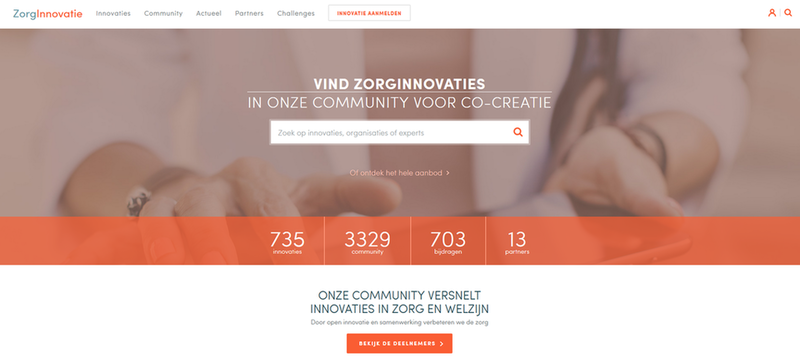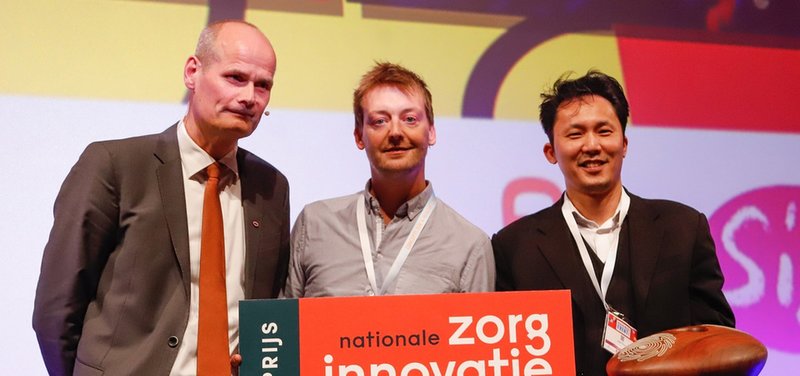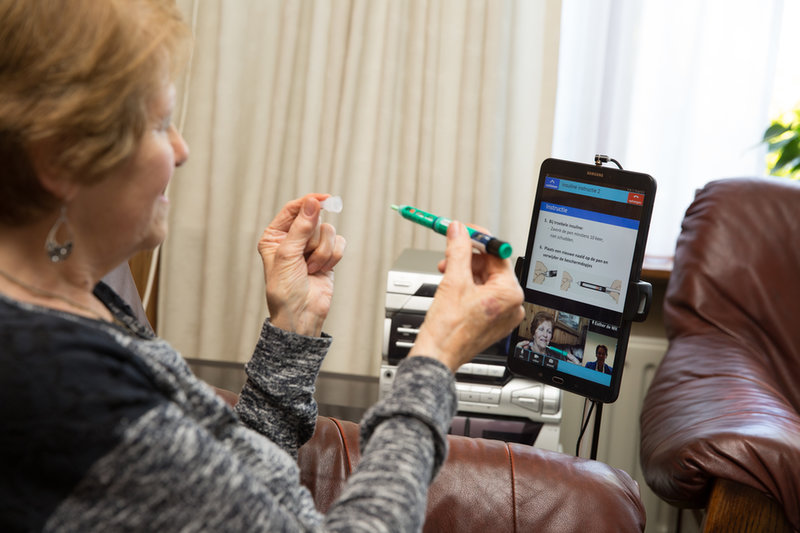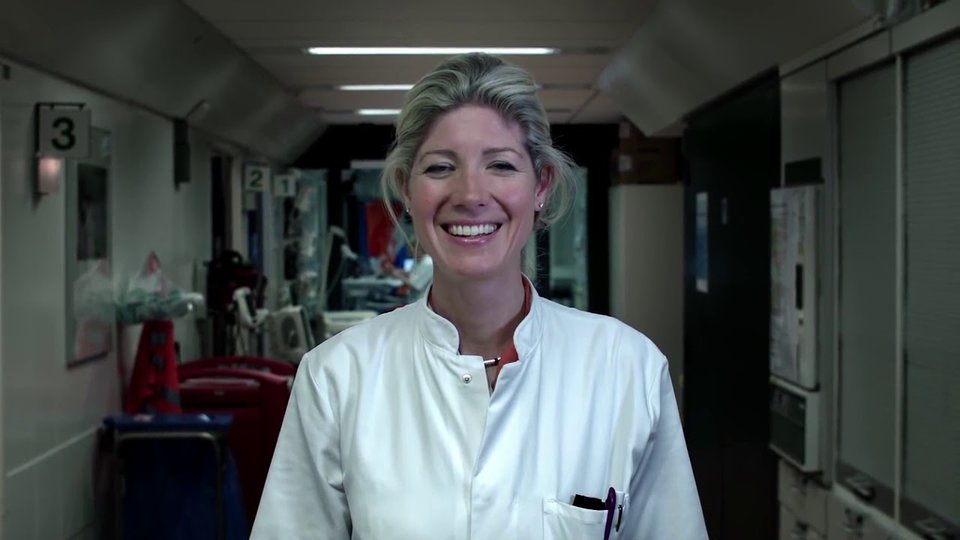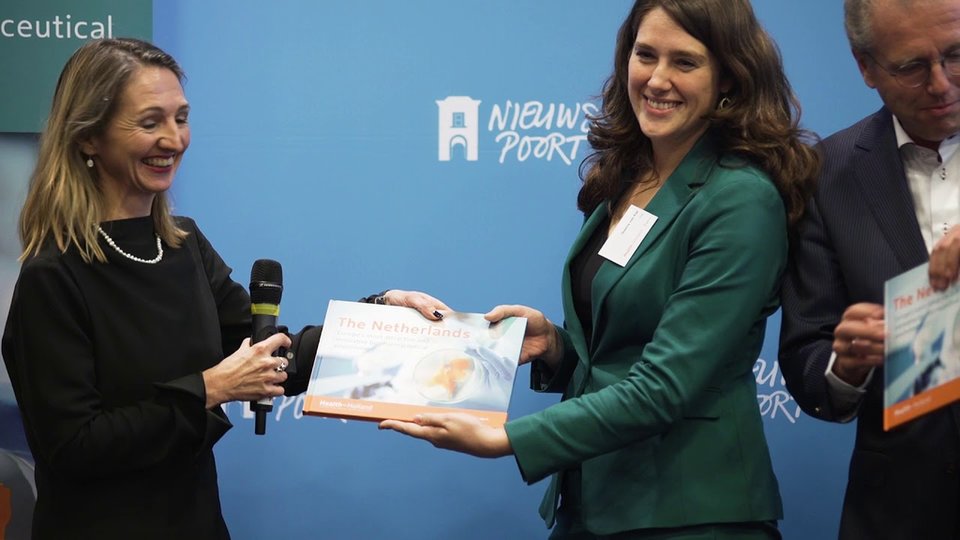Top Sector Life Sciences & Health
Other News from the Top Sector Life Sciences & Health
Read on more activities and news from the Top Sector LSH in 2018. Be inspired by stories from large collaborations with health foundations up to developments of a startup.
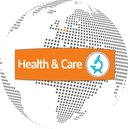
New-mission driven innovation policy›
Health & Care officially assigned as on of the central themes.
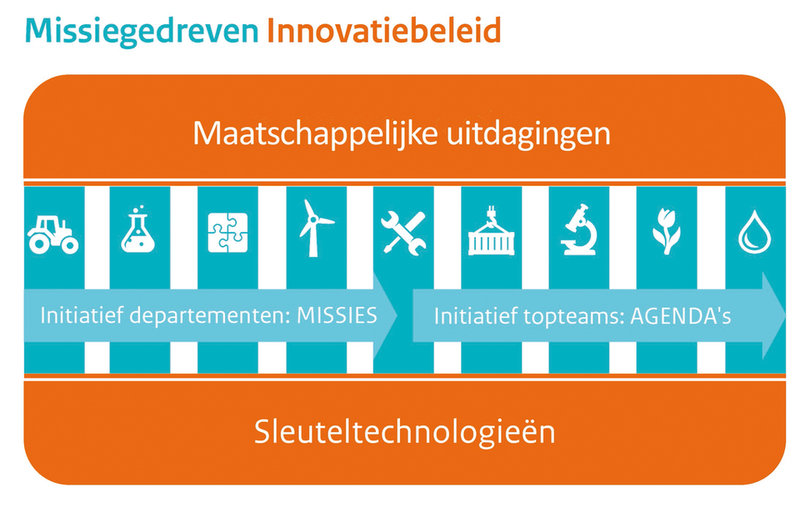
Health and Care officially assigned as central theme in the mission-driven innovation policy
On 13 July 2018 the Ministerial Council officially approved the new Mission-Driven Innovation Policy that builds upon the Top Sector Policy, with a clear focus on global societal challenges. Health and Care is appointed as one of the four central themes in the renewed Top Sector Policy. Top Sector Life Sciences & Health (LSH) celebrates this good news for the Dutch LSH sector. The importance of the LSH sector and the robust innovative solutions it offers are hereby once again officially recognised by the government.
Collaboration in the quadruple helix
To tackle the societal challenge Health and Care, improving the quality of life (vitality) while restraining the costs of healthcare, it is of utmost importance that citizens, researchers, government and entrepreneurs join forces in the field of science, applied research and innovation. As Health and Care is appointed as one of the central themes in the renewed Top Sector Policy by Minister Eric Wiebes and State Secretary Mona Keijzer, the Top Sector LSH can further stimulate this collaboration in the quadruple helix.
Mission driven innovation policy
Agriculture, Water & Food; Energy transition & Sustainability and Safety are the other central themes appointed within the renewed top sector policy. For all of the societal challenges a number of clear missions will be drafted. These missions are guiding for the establishment of Knowledge and Innovation Agenda’s (KIA’s). Within these agenda’s the approach and strategic plans to reach these missions will be laid out. Other focus points will be valorisation, Human Capital, internationalisation, hurdles in legislation and regulation, the role of the government as launching customer and the affiliation with European and regional initiatives and financing.
The innovation potential in Health and Care is enormous. New treatment modalities, including disease prevention and real cures will lead to huge benefits for patients and society at large.
Hans Schikan, Top Sector LSH
'The innovation potential in Health and Care is enormous. New treatment modalities, including disease prevention and real cures will lead to huge benefits for patients and society at large.'
At the same time, they go hand in hand with economic growth of an already thriving Life Sciences & Health sector. I am thrilled that our government embraces this view and has identified Health and Care as one of the key priorities in our national innovation policy', says Hans Schikan, Chairman a.i. of the Topsector LSH.
The Top Sector LSH’s KIA 2018-2021 describes the health and care ambitions for the next four years, with the guiding mission ‘vital functioning citizens in a healthy economy’. This mission is supported by national strategic public-private partnerships in the field of cardiovascular diseases, dementia, regenerative medicine and cancer research and will further extend in the upcoming years. In addition, the Top Sector will continue to search for new public-private partnerships that boost innovation in health and care.
Turning to action
To turn the agenda’s into action the ministry of Economic Affairs and Climate Policy expands the Public-Private Partnership (PPP) allowance, a financial instrument for public-private research and development, with 50 million euros per year. This substantial increase in financial resources gives the Top Sector LSH the possibility to invest in more PPP projects and large LSH consortia that aim to tackle diseases through large-scale research and treatment programmes.
The Top Sector LSH invites research organisations, health foundations and companies (start-ups, SMEs and industry) to jointly invest in research and development for the benefit of evidence-based innovation and to help build a strong and sustainable LSH sector that contributes to the global societal challenge ‘Health and Care’.
What happened with ZorgInnovatie in 2018?
ZorgInnovatie is a community for co-creation of innovations in care and well-being. The website ZorgInnovatie.nl is the national platform where healthcare innovators can present themselves and their innovative ideas. The platform encourages rapid knowledge sharing and intensive cooperation with relevant stakeholders. It is precisely through working with partners in different domains and regions that Zorginnovatie.nl creates added value for healthcare entrepreneurs. But what happened during 2018 for ZorgInnovatie?
The Nationale Zorginnovatieprijs
'The National Healthcare Innovation Prize (Nationale ZorgInnovatieprijs) is a prize designed to stimulate startups to scale-up faster', says organiser Stephanie van Oorschot Community Manager of Zorginnovatie.nl. 'The products must have the goal to improve care for both patients and healthcare professionals. A great example of this are the winners of last year.' In 2018, CRDL won the jury prize, and Abena Nova won the audience prize. CRDL is a sound scale that allows a new form of contact for people who have difficulty with communication and/or social interaction. Abena Nova offers incontinence material with sensor technology. Climate temperature is measured, which prevents unnecessary shifts and leakages. Both innovations that have different target audiences, but can have a major impact on people's lives and in the lives of those who care for them. At the end of November 2018, new innovative solutions could be submitted for the National Healthcare Innovation Prize 2019. ‘We saw more innovators than ever before submitting their solutions to have a chance on winning the prize, and the innovations they submitted seem promising’, says Van Oorschot. A record had been broken with 121 applications for 2019. The regional preliminaries take place during the national eHealthweek, and the final winners will be announced during the Health Valley Event, 14 March 2019.
Adoption by the Top Sector LSH
Since 1 July 2018, ZorgInnovatie.nl falls under the umbrella of the Top Sector Life Sciences & Health, Health~Holland. By adopting ZorgInnovatie.nl, Health~Holland can strengthen its mission, “vital functioning citizens in a healthy economy”. Where Health~Holland has the resources and the network to scale up innovations, ZorgInnovatie.nl has insight into existing innovations and developments of the market. Zorginnovatie.nl is convinced that the adoption offers many opportunities for the further development of the platform and thus increases the benefits for innovators, care institutions and other healthcare initiatives. Within the ecosystem of ZorgInnovatie.nl, the current regional partners will remain involved.
Ernst Nagel, Operations Director at the Top Sector LSH, sees the adoption of ZorgInnovatie.nl as an excellent opportunity to help upscale healthcare innovations in the Netherlands.
The Top Sector is looking forward to develop the successful community ZorgInnovatie.nl within the Health~Holland branding and thus providing a larger spotlight for regional healthcare innovations.
Ernst Nagel, Top Sector LSH
Community Manager at Zorginnovatie.nl
A brand new face! This summer Stephanie van Oorschot started as Community Manager of ZorgInnovatie.nl. Van Oorschot: ‘With my expertise in online marketing and business administration, I want to further expand Zorginnovatie.nl into a platform to connect innovators and provide a platform for care innovations.’ She adds the well-known African proverb.‘If you want to go fast, go alone. If you want to get far, go together.’ This saying gives a good description of the basic foundation on how to develop successful innovations, especially in healthcare. Successful development and implementation are necessary to be able to solve current and future societal challenges in healthcare.
New Innovations
Healthcare deserves good innovations. These can only be developed if different parties can find each other. Zorginnovatie.nl offers a platform to establish a community for innovators. On this platform, they can share detailed ideas and start a collaboration with other inspiring innovators. Co-creation increases reach and the chance of success. Currently, Zorginnovatie.nl has 738 innovations, of which 120 new innovations posted in 2018, and counting on its platform. These innovations have a broad scope, from robotics to augmented reality and from hospital settings to home settings. Discover healthcare innovations at Zorginnovatie.nl.
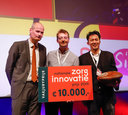
What happened with ZorgInnovatie in 2018? ›
ZorgInnovatie is a community for co-creation of innovations in care and well-being.
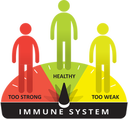
More than €15 million invested in immunology research›
For the first time such a broad collaboration investigates the immune system over a wide range of diseases.
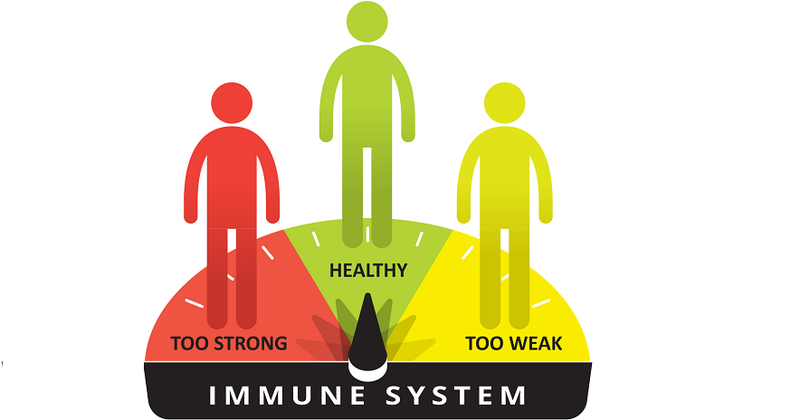
Top Sector LSH and Association of Dutch Health Foundations invest more than €15 million in immunology research
€15 million made available for immune system research
The Association of Dutch Health Foundations (SGF) and the Top Sector Life Sciences & Health and the industry by investing 15 million euros in promising immunology research projects. The new research projects aim to unravel the operation of the human immune system. This will increase our understanding of a variety of diseases that disrupt the immune system, such as cancer, rheumatism and MS, and enable new treatments to be developed. This is the first time that such a broad collaboration has been established in the Netherlands to investigate the immune system over a wide range of diseases.
The crucial role of the immune system in diseases
The immune system protects us against numerous infections and diseases. Many diseases cause the immune system to dysfunction; the immune system responds too frequently when a person has an autoimmune disease like rheumatism or diabetes, for example, whereas in some cases the immune system fails to respond frequently enough, for example to cancerous cells.
The immune system plays an important role in diseases like MS, allergies, chronic inflammatory diseases of the gastrointestinal system or respiratory tract, and the development of cardiac arrests and cerebrovascular accidents. Despite major developments in the treatment of these diseases, many patients remain uncured ways of preventing these diseases have yet to be found.
A proper working immune system keeps humans healthy. The research projects should make it possible to navigate the immune system earlier at the start of a disease. The derailment of cells plays a crucial role in the early development of many diseases. If the derailment can be restored or prevented then a real cure is in sight.
With our research we make a difference for future generations.
Taco Kuijpers, Amsterdam UMC
‘With our research we can make a difference for future generations. Patients currently die because of the illness, its effects, the side effects of therapy or because the disease becomes chronic and the patients rely on heavy medication. This has a severe impact on how people structure their lives’, says Professor Taco Kuijpers (Amsterdam UMC), project leader of one of the new research projects.
We now have now brought together the top of Dutch immunology who are going to work on this important topic.
Emiel Rolink, SGF
Together, faster and better
An important criterion in awarding the research funding was the sustainable collaboration between research institutions, businesses and health foundations. ‘We now have now brought together the top of Dutch immunology who are going to work on this important topic. Together we can achieve better results faster and offer a better future to patients with these awful diseases’, says Emiel Rolink, director of the SGF.
The Top Sector LSH is pleased to support these large collaborations between researchers, companies and health foundations. ‘The future of people with diseases such as cancer, rheumatism or diabetes is the best incentive for close collaborations like these. Only then will the innovations that these people need be realised as quickly as possible’, says Nico van Meeteren, executive director of the Top Sector LSH.
Interested in the research projects? Watch the video below of one of the projects ‘TIMID’. Or read more about the three research projects andsee the visualisation of this unique collaboration (in Dutch).
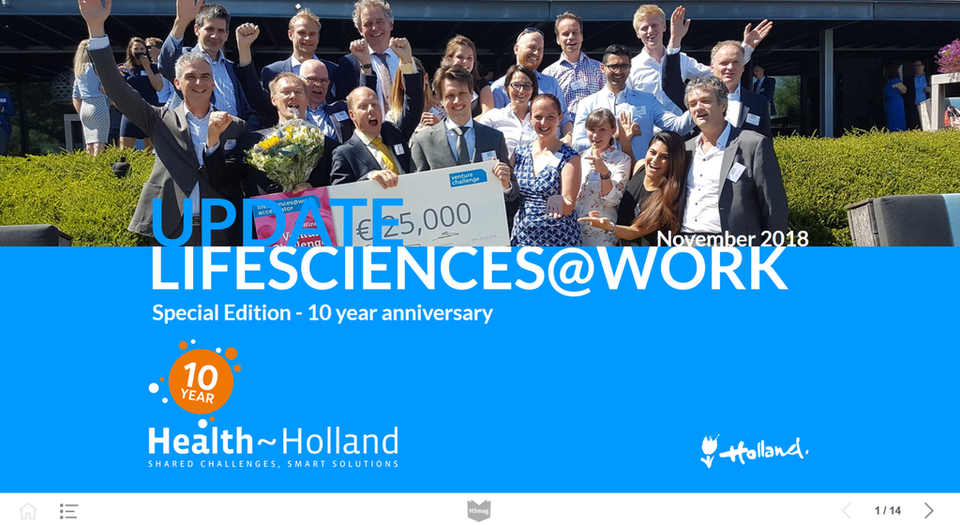
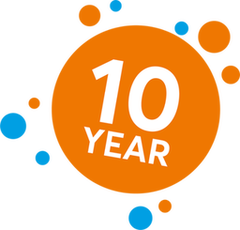
Ten years of building life sciences business: we have only just begun!
Ten years ago, an idea to create a programme to support life sciences researchers with entrepreneurial aspirations became a reality with the start of LifeSciences@Work (LS@W). This idea was born a couple of years earlier when the startup that Chretien Herben started, based on his own PhD work, was sold. Herben: ‘I wanted to do something for all those other scientists out there with brilliant PhD results that, just like me at the time, probably have no clue what it actually takes to start a science-based company.’
And now, ten years later, LS@W has seen almost a thousand proposals and supported almost 150 biotech and medtech startups. Together, these startups have attracted nearly 350 million euros, generated over 500 direct jobs and a multiple of that in indirect jobs. Four new therapeutics are in advanced clinical trials, six diagnostics and six medical device startups have products on the market, and another eighteen startups offer their services. Successful alumni of the programme include Quirem Medical, Nightbalance, NCardia, and T-Cell Factory, which is now Kite Pharma. The growth of the companies is the most inspiring part for Herben: ‘It shows that starting a business in the life sciences is a long process, but a worthy one. So we have only just begun!’
Almost a decade ago, LS@W allowed us to make a start with our work to convert human stem cells into mini-organs. This happened at a time when neither the regular granting agencies nor investors showed interest in our plans. Our organoid technology is now taking the world by storm, and our HUB-for-Organoids has assumed a key role in the commercialisation process.
Hans Clevers, Hubrecht Organoid Technology (The HUB)
Currently, LS@W is supported by the Top Sector LSH and a couple of private sponsors, such as Loyens & Loeff. Both the Top Sector and the Ministry of Economic Affairs and Climate Policy recognise the importance of the programme for the sector. LS@W brings together the best ideas from all the regions and offers specialised support in this niche of science-based startups.
Facts & Figures
From an idea and a business plan to the incorporation of a startup. From a successful pitch to new investments. The LS@W programme has supported many entrepreneurs over the last ten years. These following facts and figures give an overview of the programme’s results.

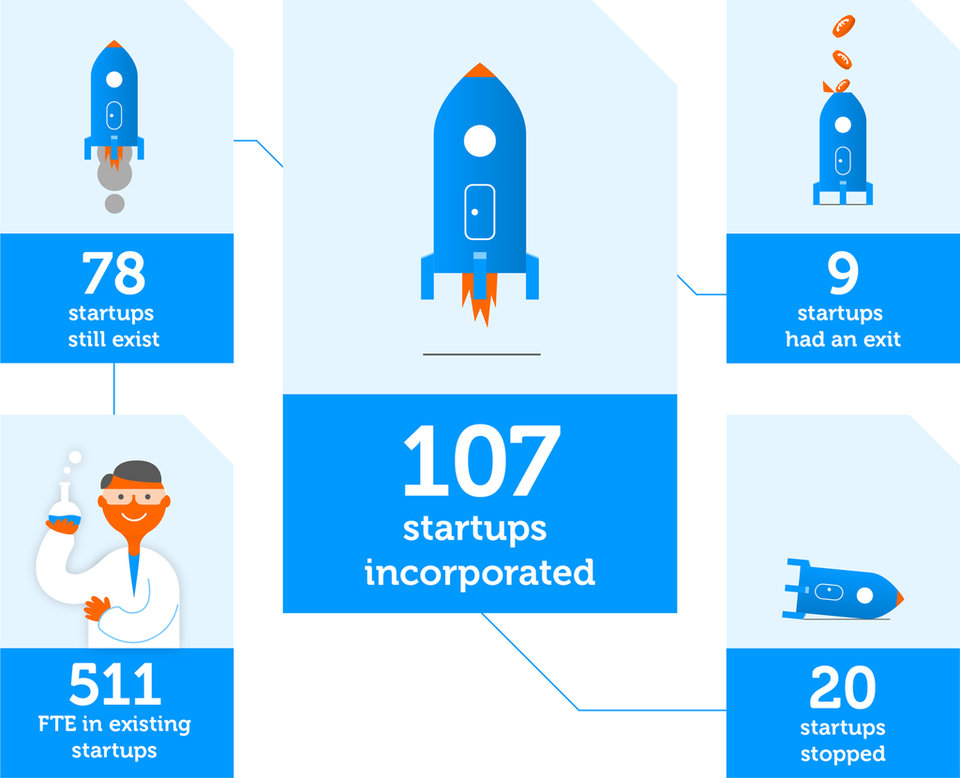
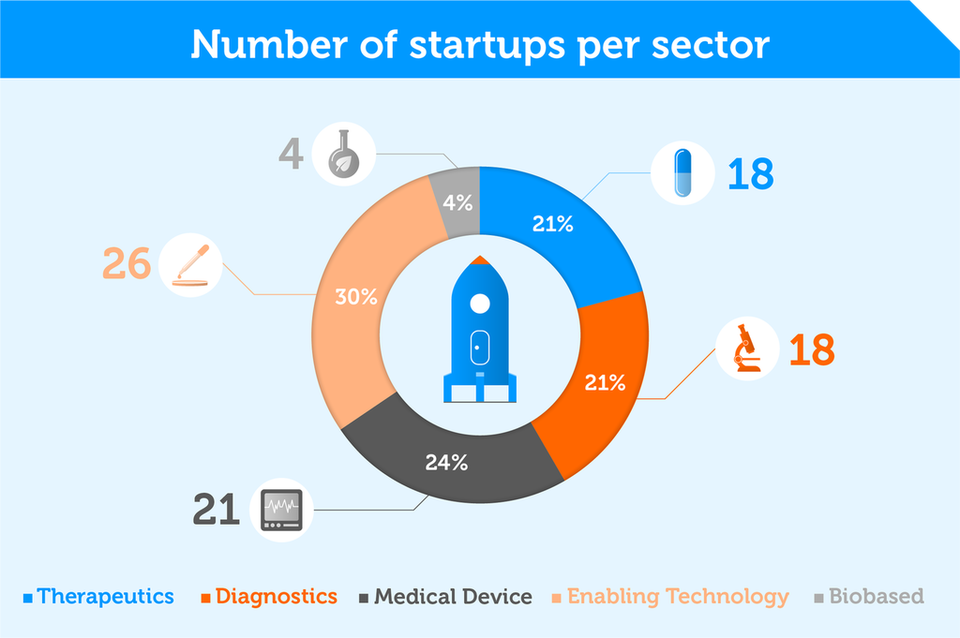
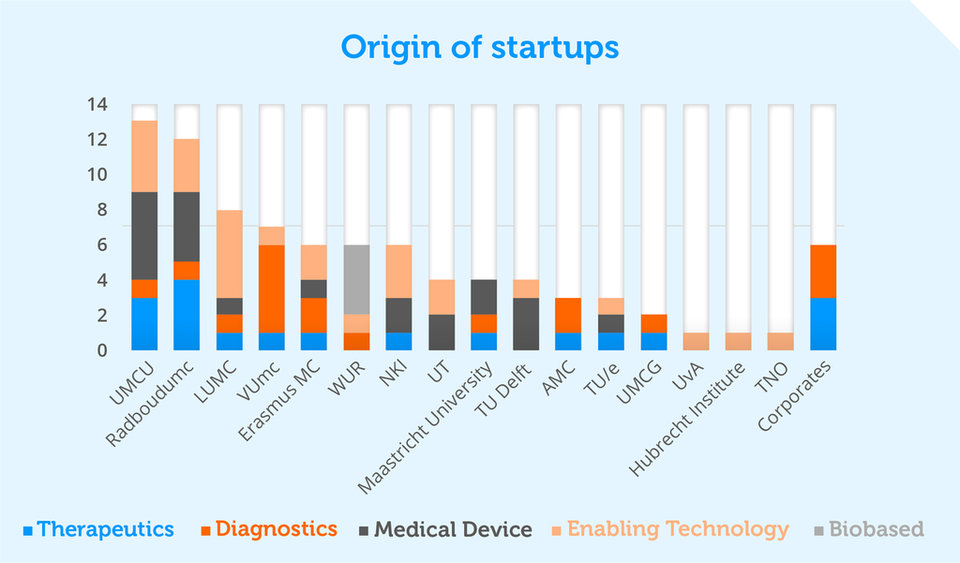
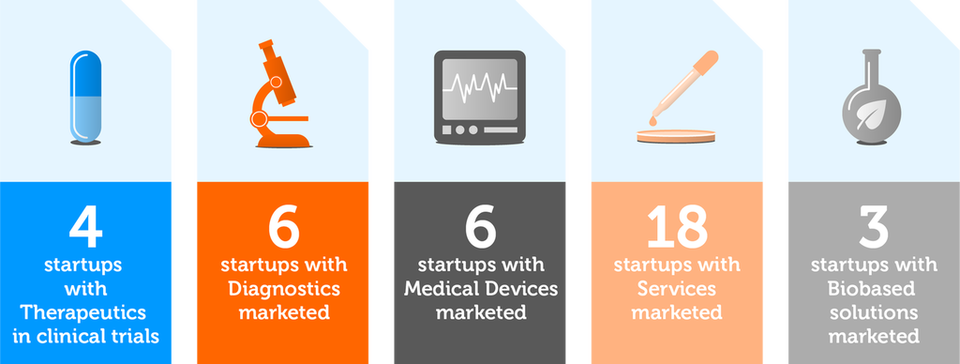
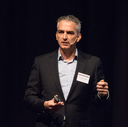
LifeSciences@Work 10 year anniversary ›
We have only just begun!

Dutch Kidney Foundation and Health~Holland granted two projects ›
Impacting the lives of (future) kidney patients.
Dutch Kidney Foundation and Top Sector LSH granted two projects that impact the lives of (future) kidney patients
The Dutch Kidney Foundation (DKF) and Top Sector Life Sciences & Health are investing € 1,300,000 in kidney research. The purpose of this public-private projects call is to initiate new collaborations in the kidney disease domain between leading scientists, emerging talents, patients, care-professionals and companies. These collaborations help to exploit the available scientific excellence in developing specific solutions and tangible products that impact the lives of (future) kidney patients or prevent kidney damage and disease. These collaborations will increase innovation and economic activity thereby contributing to the aims of the Top Sector.
Read more about the two public-private projects below.
COPEDIS
Patients with end-stage kidney disease, who are not eligible or are on the waiting list for kidney transplantation, are treated either by hemodialysis (HD) or peritoneal dialysis (PD) to replace kidney function. Although lifesaving, both conventional HD and PD have major shortcomings. The treatment is time-consuming, and removal of waste molecules and excess water is inadequate, contributing significantly to the poor quality of life, severe health problems and high mortality (15-20% per year). The daily pill burden is one of the highest reported in any chronic disease state (median 19 pills/day and >25/day in 25% of the patients).
In COPEDIS a new method for peritoneal dialysis (PD) is being developed that eliminates the major drawbacks of current PD. The main prospects are a 2-3 fold better blood purification, lower risk of infection of the membrane that lines the abdominal cavity, longer preservation of the integrity of this membrane, and less time-consuming.
This will contribute to an overall better health condition of renal patients, less medication and better quality of life. The new system makes use of sorbents that are used to continuously purify the dialysate in the peritoneum. The new device is portable and can be used during the night as a bedside device. In the COPEDIS project, the system will be optimised, built and validated in clinical trials.

BK Away
Each year, more than 80,000 patients worldwide suffering from end-stage kidney disease obtain a lease-on-life by receiving a donated kidney, dramatically improving their quality of life. While immunosuppression is essential to avoid rejection of the donor kidney, it also dramatically increases the risk of infection. Especially problematic in this setting is BK virus (BKV), a normally latent virus of the kidney that replicates to clinical levels in 35% of kidney transplant patients. This can trigger irreparable kidney damage that severely limits graft function and lifetime, leading to premature kidney loss and a return to dialysis. At present, clinicians are defenceless against BKV, with immunosuppressive tapering allowing the immune system to combat BKV, albeit with an increased risk of both graft rejection and loss.
At Leiden University Medical Centre (LUMC) a cost-effective proprietary therapeutic compound has been developed that can be intravenously administered to protect the kidney from BKV-mediated damage while maintaining full immunosuppression. Their novel drug diminishes the generation of infectious BKV by more than 80%, and will delay the need for expensive follow-up procedures, including re-transplantation (estimated at 370K€ per patient) and dialysis (90K€ per annum per patient).
Their patented technology employs nuclease-resistant, RNA-based, antisense oligonucleotides (AONs) that naturally target the kidney and disrupt the formation of proper large T- antigen RNA yielding protein isoforms that are ineffective at generating BKV progeny. Based at the LUMC, a team of scientists from the Department of Nephrology conceived and developed the proprietary technology as a result of long-standing expertise in fundamental aspects of RNA splicing, in collaboration with in-house, world-renowned experts in splice modulation in disease settings, viral pathophysiology and kidney transplantation.

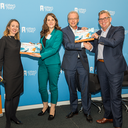
Plenty of opportunities for Dutch life sciences sector to become the Boston of Europe›
Launch bid book biopharmaceutical sector.
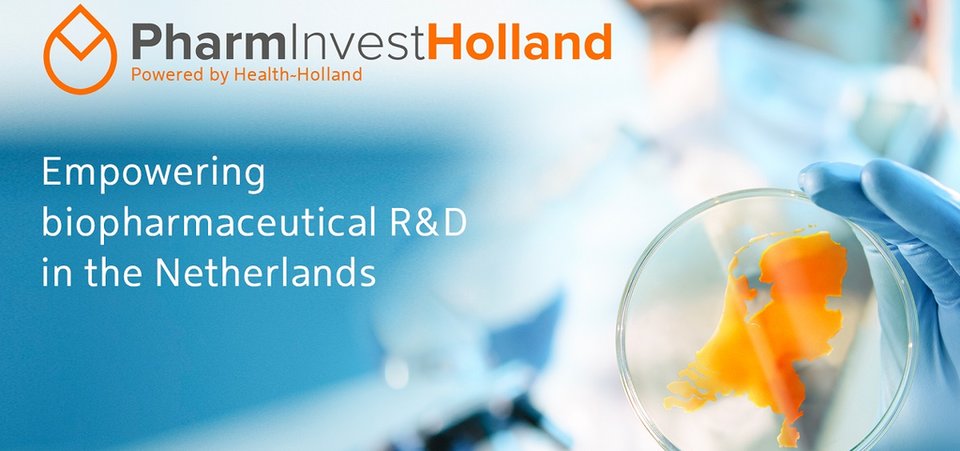
Plenty of opportunities for Dutch life sciences sector to become the Boston of Europe
'The Netherlands has plenty of opportunities to attract more investments in the pharmaceutical industry'. This conclusion was drawn by representatives from the life sciences sector and members of the Dutch House of Representatives Leendert de Lange (VVD) and Jessica van Eijs (D66) during the PharmInvestHolland gathering on 15 November where the new bid book on the Dutch biopharmaceutical industry was launched.
We have everything to be as leading as Boston with regard to medicine development.
Hans Schikan, Top Sector LSH
The Boston of Europe
Hans Schikan, chairman a.i. of Top Sector Life Sciences & Health, did not hide his ambition in the slightest. 'With 420 innovative companies, 8 academic hospitals and 13 universities focussing on medicine development in a small geographical area, the Netherlands has everything to become the Boston of Europe. Additionally, the arrival of the European Medicine Agency (EMA) in the Netherlands in 2019 will reassure medicine developers that we are definitely on the map. The Dutch government and entrepreneurs must firmly seize the opportunities the EMA offers.'
Call for mutual trust
Leendert de Lange (VVD) called for more trust between the biopharmaceutical sector and the government: 'I am proud when I see how businesses are popping up like mushrooms in our science parks. To take the next step, the interaction between government and businesses needs to be enhanced. That is only possible if we jointly work on a predictable and consistent policy and we trust each other.'
Impressive impact
Jessica van Eijs (D66) called the impact of the innovation by pharmaceutical companies impressive. ‘Excellent collaboration between all parties involved is needed to maximise this impact. The government entrepreneurs, educational establishments and citizens need to keep the ball rolling and jointly create local ecosystems. The arrival of the EMA can reinforce this positive effect.’
The members of the Dutch House of Representatives received the new edition of the bid book from Gerard Schouw (Dutch Association Innovative Medicines) and Annemiek Verkamman (HollandBIO) during the PharmInvestHolland gathering. The industry now has a wonderful tool to show what the Netherlands has to offer.
Be good and tell it. Our biopharmaceutical sector is already good, now we have a great tool to tell it.
Annemiek Verkamman, HollandBIO
Read the new bid book here and watch a short video of the gathering below:
